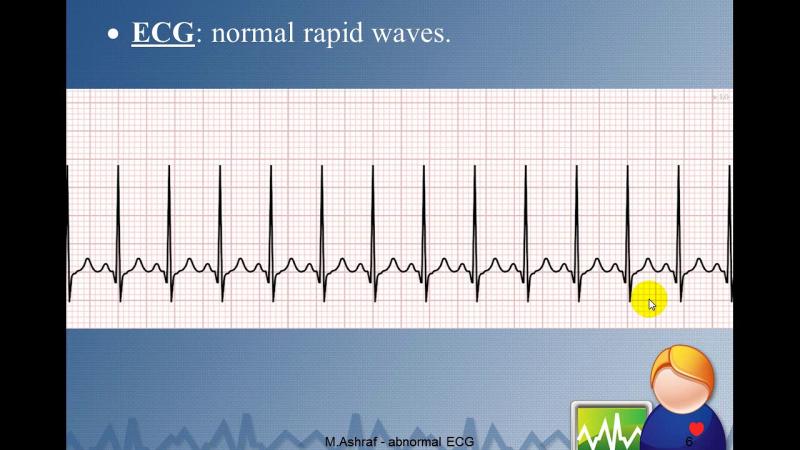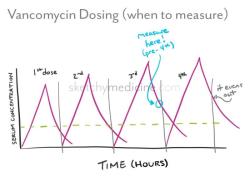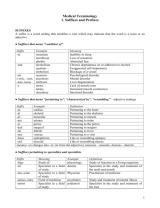What can cause abnormal EKG?
Several factors can contribute to abnormal electrocardiogram (EKG or ECG) results. An abnormal EKG may indicate various cardiac and non-cardiac conditions. Here are some factors that can cause abnormal EKG results:
Cardiac Conditions:
- Arrhythmias: Irregular heart rhythms, such as atrial fibrillation, atrial flutter, ventricular tachycardia, or bradycardia.
- Ischemia: Reduced blood flow to the heart muscle, often due to coronary artery disease, can result in ST-segment depression or elevation.
- Myocardial Infarction (Heart Attack): A heart attack can cause specific EKG changes, including ST-segment elevation or Q-wave changes.
- Cardiomyopathies: Diseases affecting the heart muscle can lead to abnormal EKG patterns.
Structural Heart Abnormalities:
- Valvular Heart Disease: Conditions such as stenosis or regurgitation of heart valves.
- Hypertrophy: Enlargement of the heart, particularly the left ventricle, can alter EKG readings.
Conduction System Abnormalities:
- Bundle Branch Blocks: Disruptions in the electrical conduction pathways.
- Heart Block: Impaired electrical signals between the atria and ventricles.
Inflammation and Infection:
- Myocarditis: Inflammation of the heart muscle.
- Pericarditis: Inflammation of the pericardium, the sac surrounding the heart.
Electrolyte Imbalances:
- Abnormal levels of potassium, sodium, calcium, or magnesium in the blood can affect the heart's electrical activity.
Drug Effects:
- Certain medications, including antiarrhythmics, can influence EKG readings.
- Drugs that prolong the QT interval may lead to arrhythmias.
Hypothermia or Hyperthermia:
- Extreme body temperatures can affect the heart's electrical activity.
Stress and Anxiety:
- Emotional or physical stress can cause changes in heart rate and rhythm.
Incorrect Electrode Placement:
- Misplacement of EKG leads can result in inaccurate readings.
Age and Gender:
- Normal EKG values can vary with age, and there are gender-related differences.
Other Medical Conditions:
- Chronic lung diseases, such as chronic obstructive pulmonary disease (COPD), can affect the EKG.
- Thyroid disorders can impact heart rate and rhythm.
It's crucial to interpret EKG results in the context of a patient's medical history, symptoms, and other diagnostic tests. Only healthcare professionals, such as cardiologists or electrophysiologists, are trained to thoroughly analyze and interpret EKG results and determine appropriate courses of action based on the findings. If someone receives an abnormal EKG result, they should consult with a healthcare provider for a comprehensive evaluation and appropriate follow-up.
EKG abnormalities: What can cause an abnormal EKG?
An electrocardiogram (EKG or ECG) is a non-invasive test that records the electrical activity of the heart. It is a valuable tool for diagnosing a variety of heart conditions, including arrhythmias, heart block, myocardial infarction (heart attack), pericarditis, and electrolyte imbalances.
An abnormal EKG can be caused by a variety of conditions and factors. Some of the most common causes include:
- Coronary artery disease: A narrowing of the arteries that supply blood to the heart muscle.
- Heart valve disease: Damage to the heart valves that can affect the flow of blood through the heart.
- Hypertension (high blood pressure): High blood pressure can damage the heart muscle and arteries.
- Diabetes: Diabetes can damage the nerves and blood vessels that control the heart.
- Medications: Some medications can affect the heart's electrical activity.
- Stress and anxiety: Stress and anxiety can trigger irregular heart rhythms.
- Dehydration: Dehydration can affect the concentration of electrolytes in the blood, which can affect the heart's electrical activity.
Identifying common factors and conditions that can lead to abnormal electrocardiograms
In addition to the general causes listed above, there are a number of specific factors and conditions that can lead to abnormal EKGs. These include:
- Age: EKG abnormalities become more common with age.
- Gender: Men are more likely than women to have EKG abnormalities.
- Race: African Americans and Hispanics are more likely than Caucasians to have EKG abnormalities.
- Family history: A family history of heart disease increases the risk of EKG abnormalities.
- Lifestyle: Smoking, obesity, and physical inactivity can increase the risk of EKG abnormalities.
Tips for healthcare professionals in interpreting and addressing abnormal EKG results
When interpreting an EKG, healthcare professionals should consider the patient's age, gender, race, family history, lifestyle, and other medical conditions. They should also be aware of the limitations of EKGs and be prepared to order additional tests, such as an echocardiogram or stress test, if necessary.
Here are some specific tips for healthcare professionals in interpreting and addressing abnormal EKG results:
- Look for patterns: An abnormal EKG may not be immediately obvious, so it is important to look for patterns of abnormalities.
- Compare to previous EKGs: If the patient has had previous EKGs, it is helpful to compare the new EKG to the old ones to see if there are any changes.
- Consider the patient's symptoms: The patient's symptoms can help to guide the interpretation of the EKG.
- Order additional tests if necessary: If the EKG is abnormal and the cause is not clear, additional tests may be needed to make a diagnosis.
- Treat the underlying condition: Once the cause of the abnormal EKG is determined, the underlying condition should be treated.
EKGs are a valuable tool for diagnosing heart conditions. By understanding the causes of abnormal EKGs and interpreting the results carefully, healthcare professionals can help to improve the quality of care for their patients.













